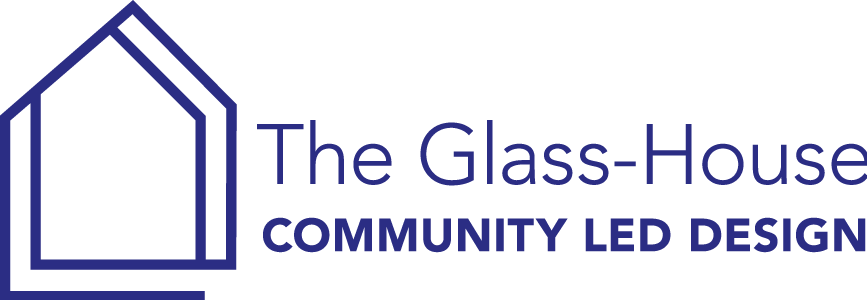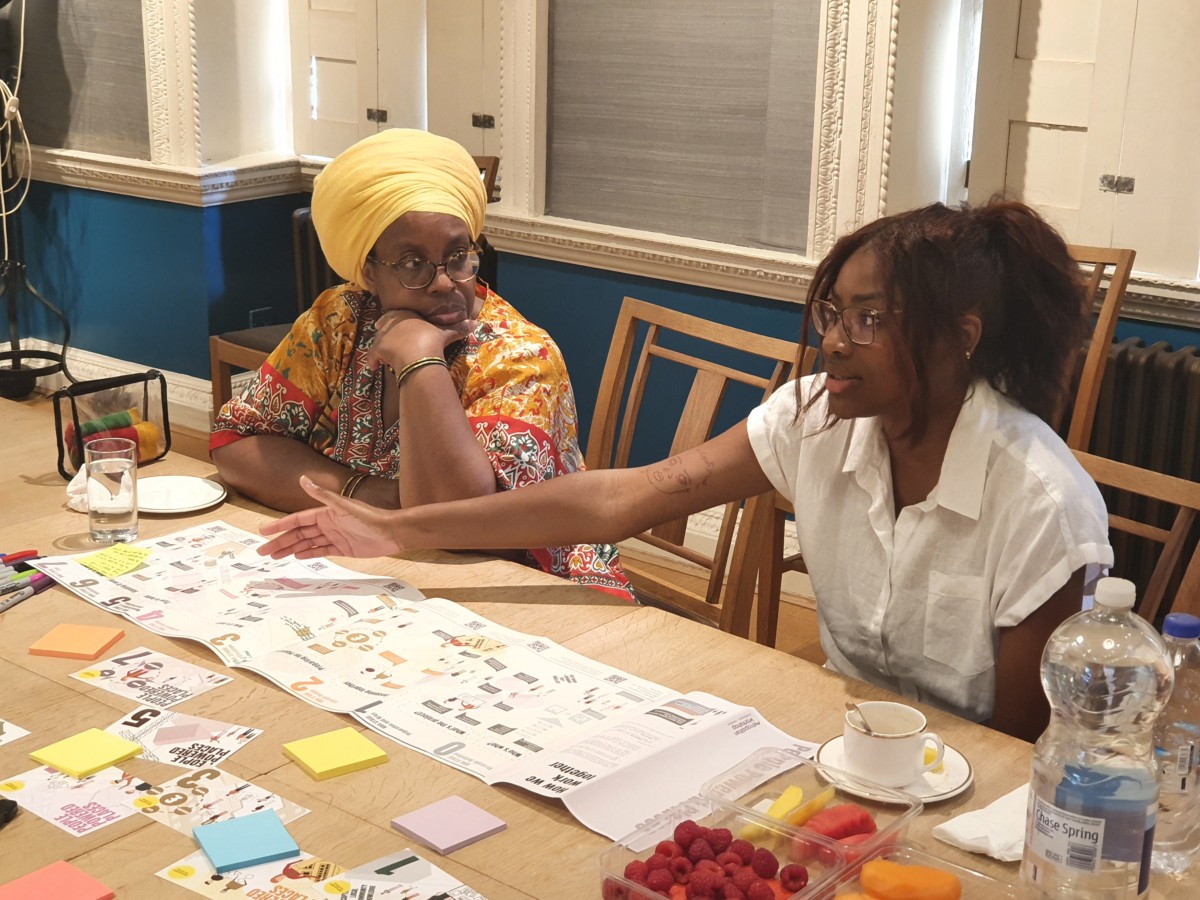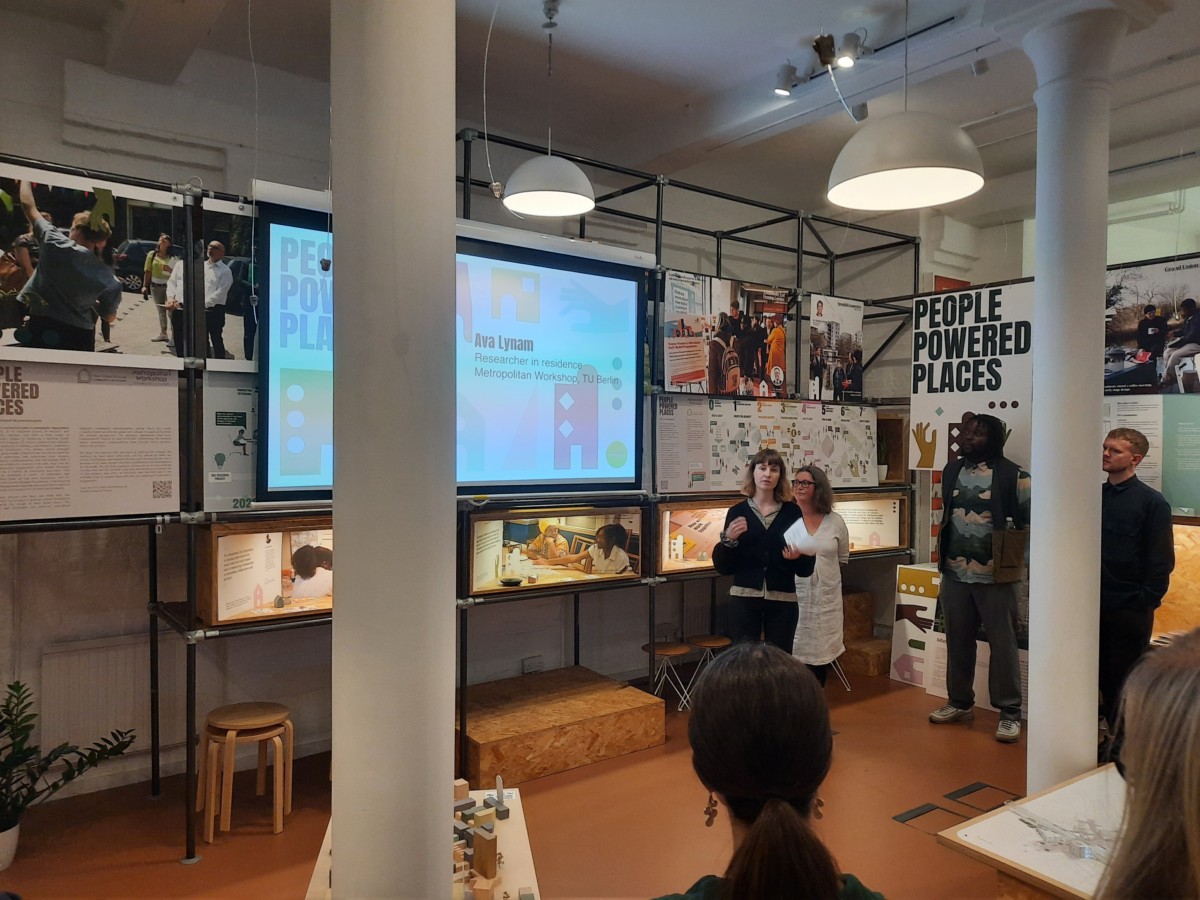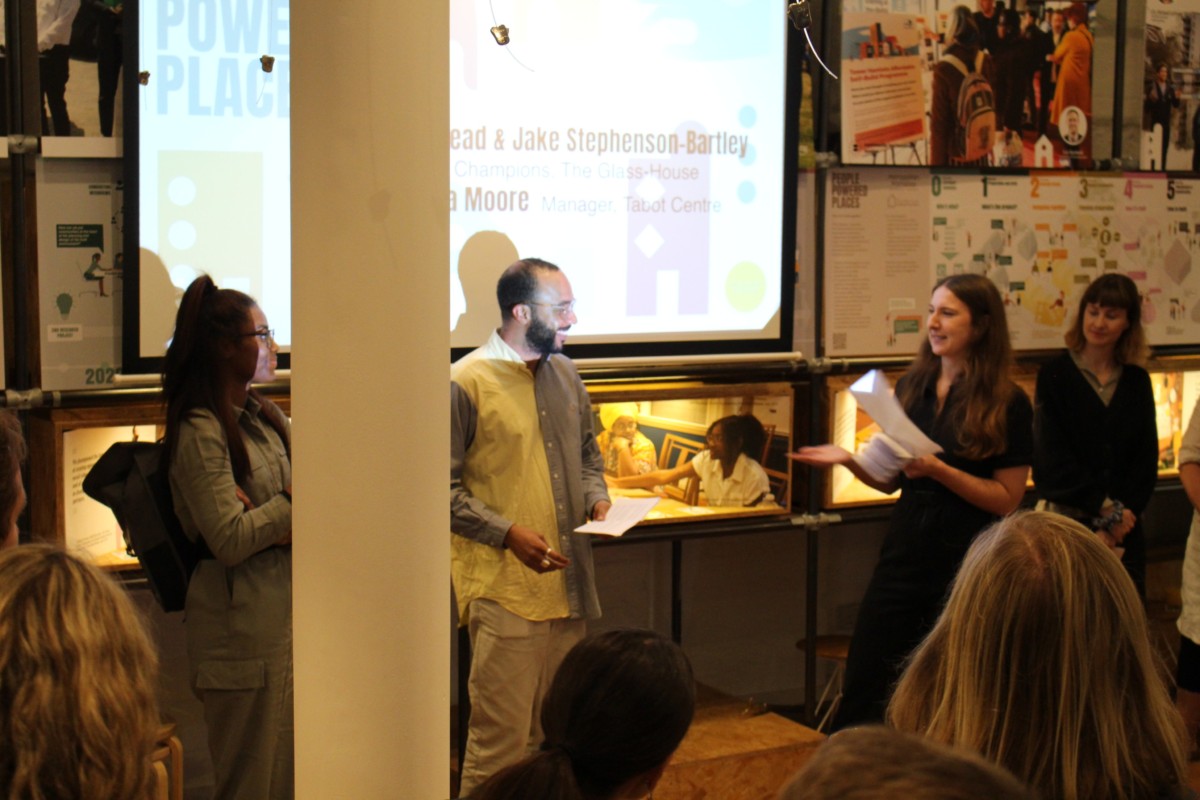Bringing our Community Champions into a conversation about community design engagement with Metropolitan Workshop
project date: 2021
The Story
Between 2020 and 2022, Metropolitan Workshop (Met Work), an architectural and urban design practice based in London and Dublin, developed their organisation’s second practice-based project, People Powered Places. The 2-year research project was led by Met Work’s research consultants Ava Lynam (TU Berlin) and Dhruv Sookhoo (Manchester School of Architecture and Newcastle University). It aimed to critically appraise innovative methods of community participation in planning and housing design in order to enrich Met Work’s approach to working with new and existing communities, as well as generate conversation around engagement throughout the project and share their findings with the wider community of practice.
Met Work invited The Glass-House into this research in 2022, to act as a critical friend to reflect on the guidance and tools emerging from the research process. They were particularly interested in The Glass-House bringing some of our community champions into these spaces to explore the emerging tools and resources with a critical lens. Our community champions, who are community members we have previously connected with through engagement processes, have first-hand experience of regeneration projects taking place in their neighbourhoods. We invited two of our community champions, Angela Moore and Toni Dyer-Miller, into this conversation to work alongside The Glass-House in this space as experts.
Our Community Champions
Angela is the co-founder and former manager of the Tabot Centre in North London, and was a member of the Granville Homes Resident Steering Group, who The Glass-House supported in 2005 as part of the Granville New Homes regeneration project in South Kilburn, North London. Angela played an active role in the design journey for the new building, pocket park and new homes, and has remained an active and passionate member of the local community since. She has also helped The Glass-House share the story of the design engagement journey for Granville New Homes through study tours for both community design groups and for design and planning professionals, as well as injecting provocations into Glass-House events and blog series.
We first met Toni in 2019, when she was a resident at St Raphael’s Estate, North London, through a regeneration project being led by Karakusevic Carson Architects (KCA) into which The Glass-House had injected Design Training for the Resident Steering Group . Through the collaboration, Toni undertook an internship working with The Glass-House, Brent Council and KCA to explore working within the different sectors in the placemaking world. Following the end of the internship, Toni went on to work with both The Glass-House and KCA, before stepping into another role within the placemaking sector.
Met Work Workshops
Angela and Toni joined us for two workshops, the first delivered in April 2022 and the second in July 2022, in order to feed their knowledge and opinions into the research project at two crucial stages of the resource development for People Powered Places..
The first workshop sought to introduce The Glass-House team and our community champions to the context of the research project so far and the initial draft of a resource pack Met Work had been developing in response to the research findings. The pack consisted of a Practice Guide and a graphic poster designed to communicate Met Work’s key principles and methods for engagement across a design journey, mapping their methods against the stages of a typical architecture or planning project. Our working group provided in-depth feedback on the content, format and functionality of the resources in development, offering thoughts on how they could be best integrated into Met Work’s approach and methodology, while becoming useful and accessible resources for the communities with which they were working.
The second workshop brought our critical friend team back together to review the updated graphic poster and graphic guide. One great update to the resources was the addition of a set of postcards which set out the project stages for community members participating in design engagement sessions. The aim of these, alongside the graphic poster, is to clearly map out the stages of design and the role community engagement can play in informing each of them.. Being able to see how our community champions’ involvement, advice and opinions had shaped how the resources had been further evolved by Met Work was a fantastic experience for our champions, as well as our team. There was a consensus from all involved that the role of the community champions had enriched Met Work’s approach, work and outputs.
People Powered Places Exhibition and Resources
In September 2022, Met Work celebrated the end of their People Powered Places research project and the subsequent publication of their suite of resources, at an evening event in their studio and exhibition space in Central London.
Practitioners, community members and friends gathered to celebrate alongside the Met Work team, who invited their research collaborators to speak about the project. Glass-House Design Champions Elly and Jake joined our community champion Toni in speaking about our workshop experience. Catherine Greig from Make:good spoke alongside a community member from Carpenters Estate in London, and Nicola Bacon from Social Life also reflected on their involvement and related work.
People Powered Places: A Practical Guide to Community Engagement has emerged out of their research process, a live document (which Met Work will continue to feed into and adapt as they test it in practice) consisting of 5 elements:
- The Graphic: An A3 foldout banner with a diagram illustrating Met Work’s recommendations for more meaningful community engagement throughout each of the stages of a typical architectural or planning project.
- Postcards: The same diagram broken down into 8 double sided postcards, designed for community members to take away from engagement sessions.
- Principles and Recommendations: A document outlining Met Work’s method for meaningful community engagement, outlined stage by stage.
- Process and Reflections: A document capturing the process of the research project.
- Resources: A developing collection of community engagement methods and tools from other practitioners.
You can explore these resources on Met Work’s website here.
Impact
On People Powered Places:
Through these critical friend workshops, we brought together both the perspectives of community activists, who have lived through significant regeneration projects in their neighbourhoods, and our charity’s organisational experience of championing and enabling community participation and leadership in design and placemaking. We were also in these workshop spaces simply as people, responding quite personally and instinctively through our respective lived and professional experience to the variety of resources Met Work had been developing. Although our working group only consisted of 5 people, we were able to bring a multitude of perspectives and ideas to Met Work’s ongoing research and outputs which were instrumental to the development of People Powered Places.
The format, design and content of the People Powered Places suite of resources were all heavily influenced by our workshops and the input of our community champions. Our community champions became active partners in the development of Met Work’s series of principles and recommendations, feeding into a more meaningful community engagement approach for the practice and their wider community of interest.
For our Community Champions:
The invitation for our community champions to define the outputs of Met Work’s research offered a wonderful model for celebrating the importance and value of communities, their knowledge, expertise and power in shaping placemaking process.
Toni also joined us at the People Powered Places launch in September 2022 to talk about her experience of the workshops, and connect with other like minded practitioners and community members in the room.
Within The Glass-House
It is fantastic to see a practice that is putting their money where their mouth is in terms of co-developing community design engagement approaches with community members, and actively investing in a process which invites these community voices and expertise back into the conversion. Often, research of this nature can have a tendency to stay within particular professional networks or spaces, so to see Met Work recognise that the need for community voices to critically assess and ground their research has been inspiring.
As a charity that works responsively with communities during design processes often in catalytic moments of support and dialogue, People Powered Places has created a suite of resources which we will use to support our own work.











